Penerapan Model Pembelajaran Kooperatif Tipe Team Games Tournament (TGT) Berbasis Gamifikasi Untuk Meningkatkan Hasil Belajar Matematika
Published:
2025-04-25Issue:
Vol. 1 No. 1 (2025): AprilKeywords:
Cooperative Learning , TGT , Gamification, Mathematics Learning OutcomesAbstract
This study aims to improve mathematics learning outcomes. The subjects of this research were the students of class X.8 at SMA Negeri 2 Mataram in 2023/2024 academic year, totaling 36 students.This research is a Classroom Action Research (CAR) conducted in two cycles. Each cycles consists of four stages: planning, implementation, observation, and reflection. Data collection techniques used were observation and tests or assessments in each cycle, which were the analyzed descriptively. By applying the cooperative learning model TGT type based on gamification using the Quizizz platform, an improvement in students' mathematics learning outcomes was observed in each cycle.. In the first cycle, the average score was 71.3 with a classical completeness of 50%. In the second cycle, the average score increased to 84.8 with a classical completeness of 86%. Throughout the implementation of this approach, students felt happy and motivated in learning, which enhanced their engagement and mathematics learning outcomes. Thus, it can be concluded that applying a cooperative learning model TGT type based on gamification can enhance the mathematics learning outcomes of class X.8 at SMA Negeri 2 Mataram in 2023/2024 academic year.
References
Arikunto, S. (2007). Penelitian Tindakan Kelas. Jakarta : PT Bumi Aksara.
Badan Standar, Kurikulum, dan Asesmen Pendidikan (n.d.). Publikasi Asesmen Nasional & Rapor Pendidikan | Portal Data Kemendikbudristek. Retrieved December 14, 2024, from https://data.kemdikbud.go.id/publikasi/pendidikan/asesmen-nasional-and-rapor-pendidikan
Fadillah, Y. N. (2022). Pengaruh Penerapan Gamifikasi Pada Model Pembelajaran Kooperatif Tipe Team Game Tournament (Tgt) Terhadap Peningkatan Hasil Belajar Siswa. Sarjana’s Thesis. Universitas Pasundan. https://fkip.unpas.ac.id/
Gusniwati, M. (2015). Pengaruh Kecerdasan Emosional dan Minat Belajar terhadap Penguasaan Konsep Matematika Siswa SMAN di Kecamatan Kebon Jeruk. Formatif: Jurnal Ilmiah Pendidikan MIPA, 5(1). 26-41. https://doi.org/10.30998/FORMATIF.V5I1.165
Hasanah, Z., & Himami, A. S. (2021). MODEL PEMBELAJARAN KOOPERATIF DALAM MENUMBUHKAN KEAKTIFAN BELAJAR SISWA. Irsyaduna: Jurnal Studi Kemahasiswaaan, 1(1), 1–13. https://doi.org/10.54437/IRSYADUNA.V1I1.236
Kristiadi, D., & Mustofa, K. (2017). Platform Gamifikasi untuk Perkuliahan. IJCCS (Indonesian Journal of Computing and Cybernetics Systems), 11(2), 131–142. https://doi.org/10.22146/IJCCS.17053
Kustadiyono, I. D. (2023). Peningkatan Hasil Belajar IPA Melalui Media Video dengan Model E-Learning pada Siswa Sekolah Menengah Pertama. Jurnal Didaktika Pendidikan Dasar, 7(1), 171-180. https:// doi.org/10.26811/didaktika.v7i1.1032
Machali, I. (2022). Bagaimana Melakukan Penelitian Tindakan Kelas Bagi Guru?. Indonesian Journal of Action Research, 1(2), 315–327. https://doi.org/10.14421/IJAR.2022.12-21
Mukharomah, N. (2021). Penggunaan Aplikasi Quizizz sebagai Media Penilaian Berbasis Daring di MI Al Muqorrobiyah. Waniambey, 2(1), 12–20. https://doi.org/10.53837/WANIAMBEY.V2I1.52
Muliati, B. S. H. (2023). Meningkatkan Keaktifan Dan Prestasi Belajar Siswa Kelas XI IPA Dengan Penerapan Pembelajaran Kooperatif STAD. Mandalika Mathematics and Educations Journal, 5(1), 88–96. https://doi.org/10.29303/JM.V5I1.5069
Muslim, A. H. (2020). Penerapan Model Cooperative Tipe TGT Berbasis “Atong”. Jawa Tengah : CV. Pena Persada.
Nabillah, T., & Abadi, A. P. (2020). FAKTOR PENYEBAB RENDAHNYA HASIL BELAJAR SISWA. Prosiding Sesiomadika, 2(1c), 659. https://journal.unsika.ac.id/sesiomadika/article/view/2685
Novitasari, D. (2016). PENGARUH PENGGUNAAN MULTIMEDIA INTERAKTIF TERHADAP KEMAMPUAN PEMAHAMAN KONSEP MATEMATIS SISWA. FIBONACCI: Jurnal Pendidikan Matematika Dan Matematika, 2(2), 8–18. https://doi.org/10.24853/FBC.2.2.8-18
Prastika, Y., Baidowi, B., Junaidi, J., & Sripatmi, S. (2024). Penerapan Model Pembelajaran Kooperatif Tipe TGT Menggunakan Media Ular Tangga Terhadap Peningkatan Hasil Belajar Matematika Kelas XI Pada Materi Persamaan dan Fungsi Kuadrat di SMKN 1 Gerung. Jurnal Ilmiah Profesi Pendidikan, 9(4), 2286–2294. https://doi.org/10.29303/JIPP.V9I4.2802
Pusat Informasi Belajar.id. (n.d.). Apakah itu Quizizz? – belajar.id. Retrieved December 14, 2024, from https://pusatinformasi.belajar.id/hc/id/articles/34507789510297-Apakah-itu-Quizizz
Sinaga, D. (2024). Buku Ajar Penelitian Tindakan Kelas (PTK). Jakarta : Uki Pres.
Srimulyani, S. (2023). Menggunakan Teknik Gamifikasi untuk Meningkatkan Pembelajaran dan Keterlibatan Siswa di Kelas. EDUCARE: Jurnal Pendidikan Dan Kesehatan, 1(1), 29–35. https://doi.org/10.37985/JEDU.V1I1.2
Trianto. (2009). Mendisain Model Pembelajaran Inovatif-Progresif. Jakarta: Prenada Media Group.
Umar, M. (2021). Implementasi Model Pembelajaran Team Game Tournament untuk Meningkatkan Hasil Belajar Bahasa Inggris. Jurnal Edutrained : Jurnal Pendidikan Dan Pelatihan, 5(2), 140–147. https://doi.org/10.37730/EDUTRAINED.V5I2.154
Wastari, D. A. Y., & Sagoro, E. M. (2018). Penerapan Model Pembelajaran Kooperatif Berbasis Gamifikasi untuk Meningkatkan Hasil Belajar Materi Jurnal Penyesuaian pada Siswa Kelas X Akuntansi G SMK Muhammadiyah 1 Yogyakarta Tahun Ajaran 2017/2018. Kajian Pendidikan Akuntansi Indonesia, 7(8).
Wibowo, D. C., Handayani, A. F., Setiawan, B., & Dores, O. J. (2021). PENINGKATAN HASIL BELAJAR SISWA MENGGUNAKAN MEDIA DAKON MATEMATIKA (DAKOTA). Jurnal Ilmiah Aquinas, 4(2), 176–185. https://doi.org/10.54367/AQUINAS.V4I2.1164
Author Biographies
Gita Puspa Herlinda, Universitas Mataram
Sudi Prayitno, Universitas Mataram
Gunawan Gunawan, SMAN 2 Mataram
Rahnawati Rahnawati, SMAN 2 Mataram
License
Copyright (c) 2025 Gita Puspa Herlinda, Sudi Prayitno, Gunawan Gunawan, Rahnawati Rahnawati

This work is licensed under a Creative Commons Attribution-ShareAlike 4.0 International License.
Authors who publish with Jurnal Profesi Guru Indonesia (JPGI) agree to the following terms:
- Authors retain copyright and grant the journal right of first publication with the work simultaneously licensed under a Creative Commons Attribution License 4.0 International License (CC-BY-SA License). This license allows authors to use all articles, data sets, graphics, and appendices in data mining applications, search engines, web sites, blogs, and other platforms by providing an appropriate reference. The journal allows the author(s) to hold the copyright without restrictions and will retain publishing rights without restrictions.
- Authors are able to enter into separate, additional contractual arrangements for the non-exclusive distribution of the journal's published version of the work (e.g., post it to an institutional repository or publish it in a book), with an acknowledgement of its initial publication in Jurnal Profesi Guru Indonesia (JPGI).
- Authors are permitted and encouraged to post their work online (e.g., in institutional repositories or on their website) prior to and during the submission process, as it can lead to productive exchanges, as well as earlier and greater citation of published work (See The Effect of Open Access).




